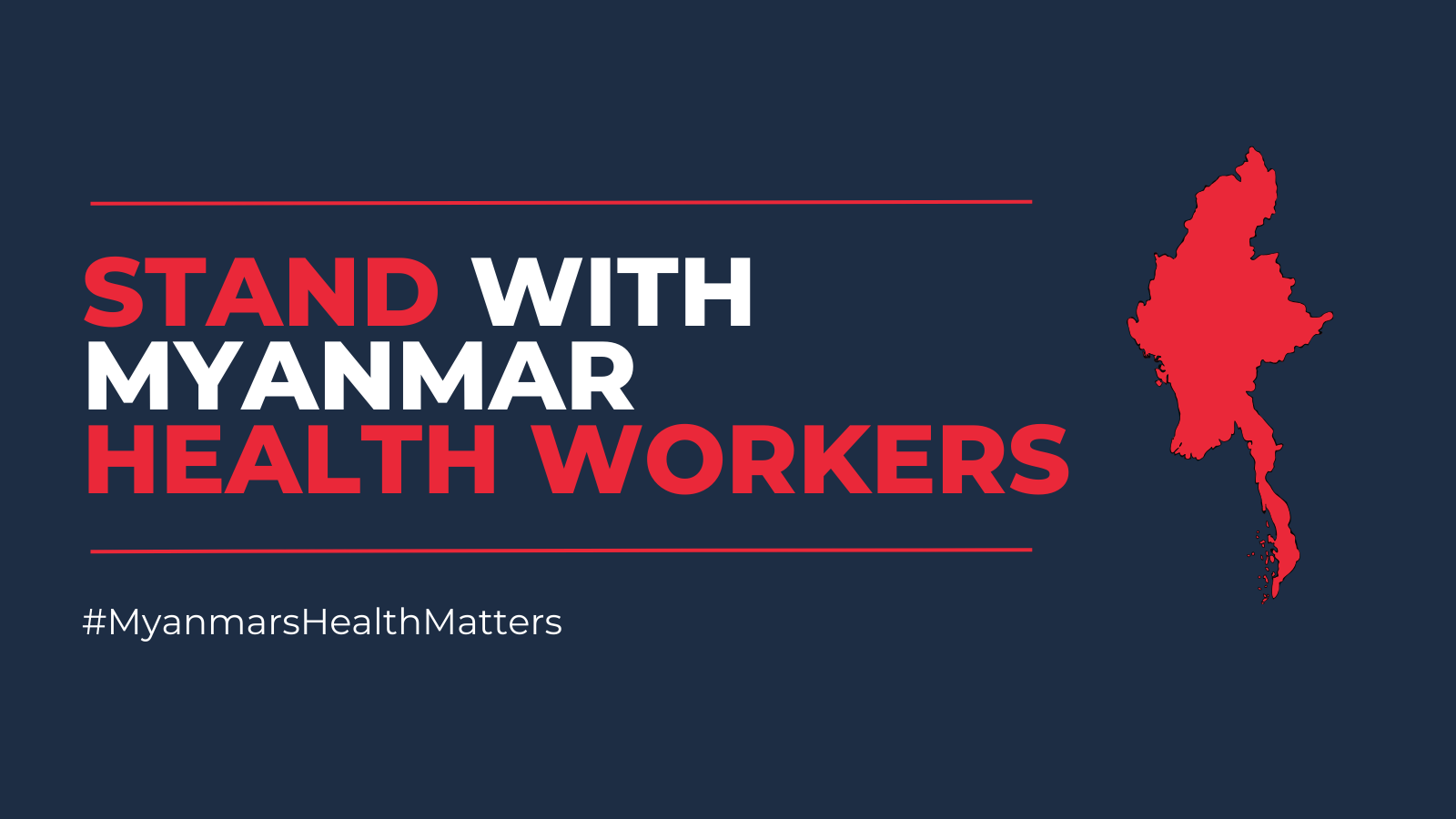Four Years Under Attack, Four Years of Resistance
31 January 2025

We continue to stand with health workers in Myanmar
The first of February each year since 2021 has become a momentous day, but for all the wrong reasons. As we again take a moment to reflect on the persecution faced by health workers in Myanmar, who continue to provide essential care despite targeted attacks during a forgotten war, we remain hopeful that peace and democracy will soon prevail.
Global Health Partnerships (formerly THET) continues to stand in unwavering solidarity with health workers in conflict zones globally.
Since Burmese independence in 1948, the Tatmadaw, Myanmar’s military, has forcibly risen to power in Myanmar on several occasions. Despite promises of free elections, Tatmadaw leaders have never seceded control, including through changes to the Myanmar constitution and not least by coup d’état. Following the military coup on 1 February 2021, sparked by the Tatmadaw declaring the November 2020 elections as invalid, Myanmar has descended into civil war as resistance groups across the country have united in opposition to forced military dictatorship.
While events in Gaza and Ukraine have occupied the minds of many, the war in Myanmar rages on. According to the UN Office for the Coordination of Humanitarian Affairs (UNOCHA), the conflict has left approximately one third of Myanmar’s population (18.6 million people) in urgent need of humanitarian assistance, with over 3 million displaced into border areas.
The massive displacement of people in Myanmar has placed enormous pressure on a strained healthcare system which is being systematically attacked by the military. While drug-resistant malaria has risen by 1,000 per cent in some parts of Myanmar, driven by people being forced into the jungle, healthcare workers are being attacked and infrastructure is being destroyed.
According to Insecurity Insight, there have been at least 1,543 incidents of violence against or obstruction of health care in Myanmar since the coup. In these incidents, health facilities have been damaged 3,388 times, 131 health workers have been killed, 135 have been injured and 40 have been kidnapped.
Some may wonder: why is the military attacking health workers? The reason is ultimately both simple and shows a grim reality, that a healthy population is a resistant population to the military’s rule.
This also highlights why the military is deliberately restricting limited aid, including essential medicines, from reaching Myanmar’s ethnic regions including those in border areas to which so many people have been forced. The blockades pose a severe risk to the population, allowing preventable diseases to spread unchecked, with children – who are already at risk due to the sharp decline in childhood immunisation rates – facing the greatest danger. Previously controlled diseases like polio, measles, and diphtheria are now at high risk of resurgence, endangering vulnerable communities, neighbouring countries, and global disease reduction efforts.
In the past 4 years, there have been
1,543
incidents of violence against or obstruction of healthcare
Since the coup, institutions and individuals in the UK have joined together through the Health Partnerships for Myanmar community, convened by Global Health Partnerships. This group has worked together to provide much-needed medical education, guidance, and support for health workers in Myanmar. Through coordination and dedication, this group, alongside the Burmese diaspora in the UK, has enabled nurses, junior doctors, GPs, and specialists to access resources and training to support their practice.
The ongoing funding provided by the UK Government to support this work is welcome, but more action is needed as the war rages into its fourth year. In the words of the UN Special Rapporteur on human rights in Myanmar, Tom Andrews, “For much of the world, Myanmar is out of sight, out of mind, deep in the shadow of other conflicts and human suffering.”.
The Health Partnerships for Myanmar community collectively calls on the UK Government to deepen its support for healthcare, humanitarian access, and greater recognition of the dire status of health and human rights in Myanmar within global forums.
Health must be at the heart of the international response to conflicts worldwide. In Myanmar, countless citizens have already been stripped of their most fundamental rights, and as violent oppression persists, the global community must urgently prioritise the safety and needs of health workers and innocent civilians before more lives are lost.


0 Comments
Leave a comment
Your email address will not be published.